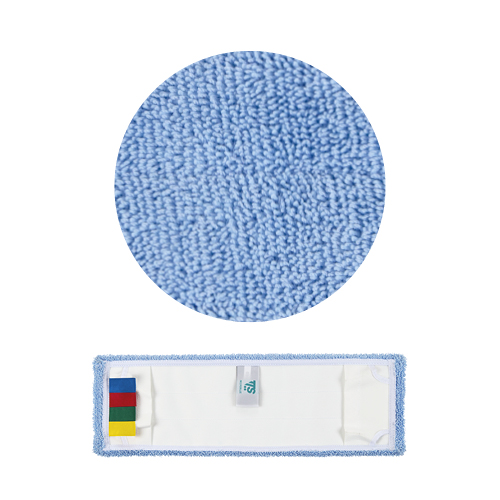Microplastics: a common enemy
250 grams of microplastics ingested through liquids and food transit through a human body every year, with little known health effects.
According to the study 'Plastic in Nature: Assessing Plastic Ingestion from Nature to People' commissioned by the WWF at Newcastle University (Australia), 250 grams of microplastics ingested through liquids and food transit through a human body every year, with little known health effects.
In the same timeframe, 8 million tonnes of plastic spill into the oceans, fragmenting into particles small enough to re-enter the food chain later on, getting into what we eat and drink, thus feeding a vicious cycle that even reaches the air we breathe.

A test case in the Mediterranean
In Europe alone, up to 500,000 tonnes of plastic waste reach the sea every year, a phenomenon that has worsened over time due in part to the numerous single-use products such as crockery, containers and plastic bags that are rarely recycled and very often abandoned in some corner after a short use. A study by the Ellen MacArthur Foundation predicts that by 2050 there will be more plastic than fish in the sea if adequate measures are not taken to prevent this.
The Balearic archipelago, a popular destination for millions of tourists each year, has become an important test case destined to bring about a change in the current consumption model. Law 8/2019 on waste and contaminated land represents a comprehensive approach to the problem of pollution that aims to reduce waste production, increase reuse and recycling, and limit disposable products as much as possible, minimising environmental impact while promoting the circular economy.
The regulations outlined by the regional government look at various potential forms of pollution and unsustainable practices, directly affecting the Hotel, Restaurant and Catering (HoReCa) sector, which generates a considerable amount of waste in the Balearic Islands, especially during peak tourist periods. These include a ban on the use of disposable plates, cutlery and glasses for the consumption of food and beverages, and on the use of single-serving packages for food such as salt, pepper and various sauces. In addition to these obligations, customers must be offered the opportunity to consume unbottled water free of charge.
The law reflects the need to reverse the trend through specific measures and set targets, and is the result of an awareness of the enormous amount of waste produced annually, the highest in all of Spain: as much as 573 kg per person, an amount that has increased by 21.5% since 2010. It is therefore not surprising that one in every six fish marketed in the Balearic Islands contains microplastics in its stomach.

Sustainable, even in the washing machine
It is estimated that up to 300,000 tonnes of microplastics are dispersed into the environment each year in Europe.
Particles do not only originate from the fragmentation of waste, but are also a direct consequence of the abrasion of tyres on the road and the deterioration of synthetic textile fibres during machine washing, whether from clothing or cleaning products. This last point calls into question the cleaning industry, which should invest in equipment that is not only effective but also environmentally sustainable. In this regard, microfibre is undoubtedly the best solution in terms of effectiveness and efficiency, but it is essential to ensure that only quality and truly sustainable products are used in order to achieve impeccable cleaning that does not harm the environment.
TTS goes even further by testing and certifying the high performance standards and low environmental impact of its products: unlike simple self-declarations that offer no guarantee to the consumer, their sustainability is recognised by authoritative certifications issued by independent third-party bodies after a long and thorough verification process.
Recent tests conducted according to the ISO 23231 standard by a specialised external laboratory have certified the low environmental impact of TTS's best-selling microfibre flat mops: Microriccio and Microblue have passed the analysis, classifying themselves as having a low release of microplastics when textiles are washed. A lower release of microplastics means greater protection of the environment and health: using wash resistant textiles helps to take care of our planet and its inhabitants.
Choosing Microriccio and Microblue therefore means greening cleaning, minimising impact without sacrificing performance. In this regard, independent laboratories have conducted tests to evaluate the effectiveness in reducing microbial contamination: the analyses carried out found that Microblue removes up to 96.6% of the bacteria present on the surface while Microriccio reaches 98.79%.
The effective mechanical action makes it possible to reduce the quantity and aggressiveness of the chemical needed to guarantee sanitisation, while the high absorbency ensures larger washing area and coverage, which means significant water savings. Lastly, the greater resistance to washing compared to natural yarns extends the life cycle of the mops, confirming the excellent investment over time.
 A cleaner future? It's in our hands!
A cleaner future? It's in our hands!
The slogan that has been TTS's hallmark for more than 20 years sums up well the commitment to transparency and efficiency that translates into a continuous investment of resources to promote the best solutions in the medium to long term for all stakeholders involved: from employees to customers and users, with an eye on future generations.
The company's good practices have been certified by prestigious partners and formally recognised: the latest achievement is the EcoVadis silver medal for environmental and ethical labour policies, which adds to the many company certifications confirming the commitment to do better and better.




